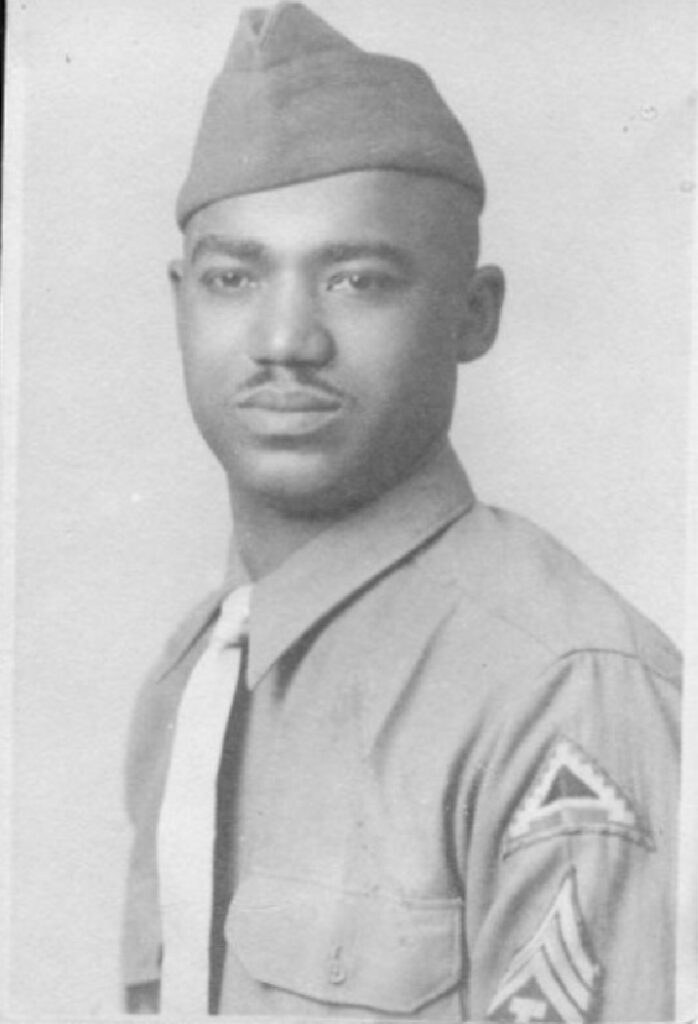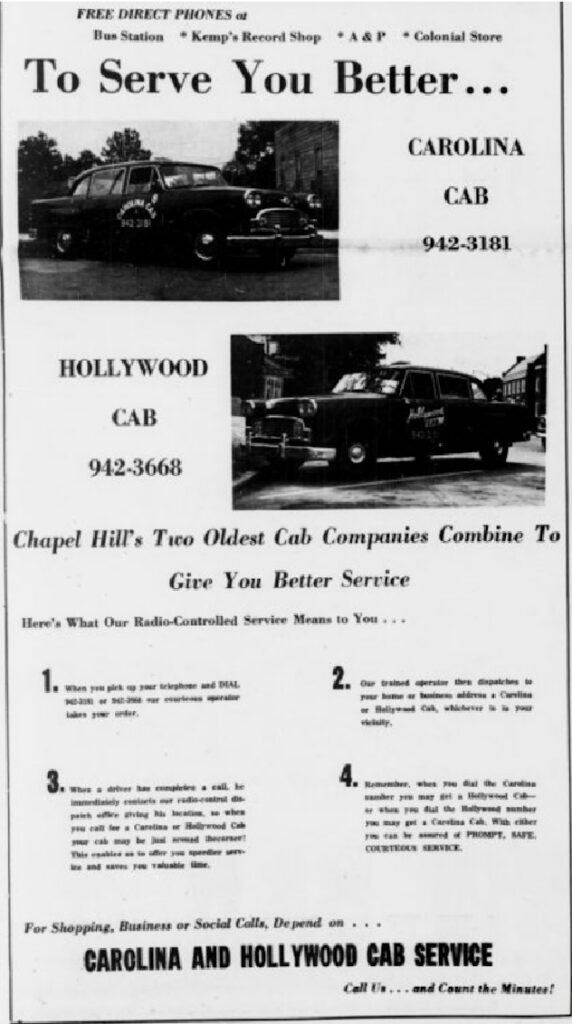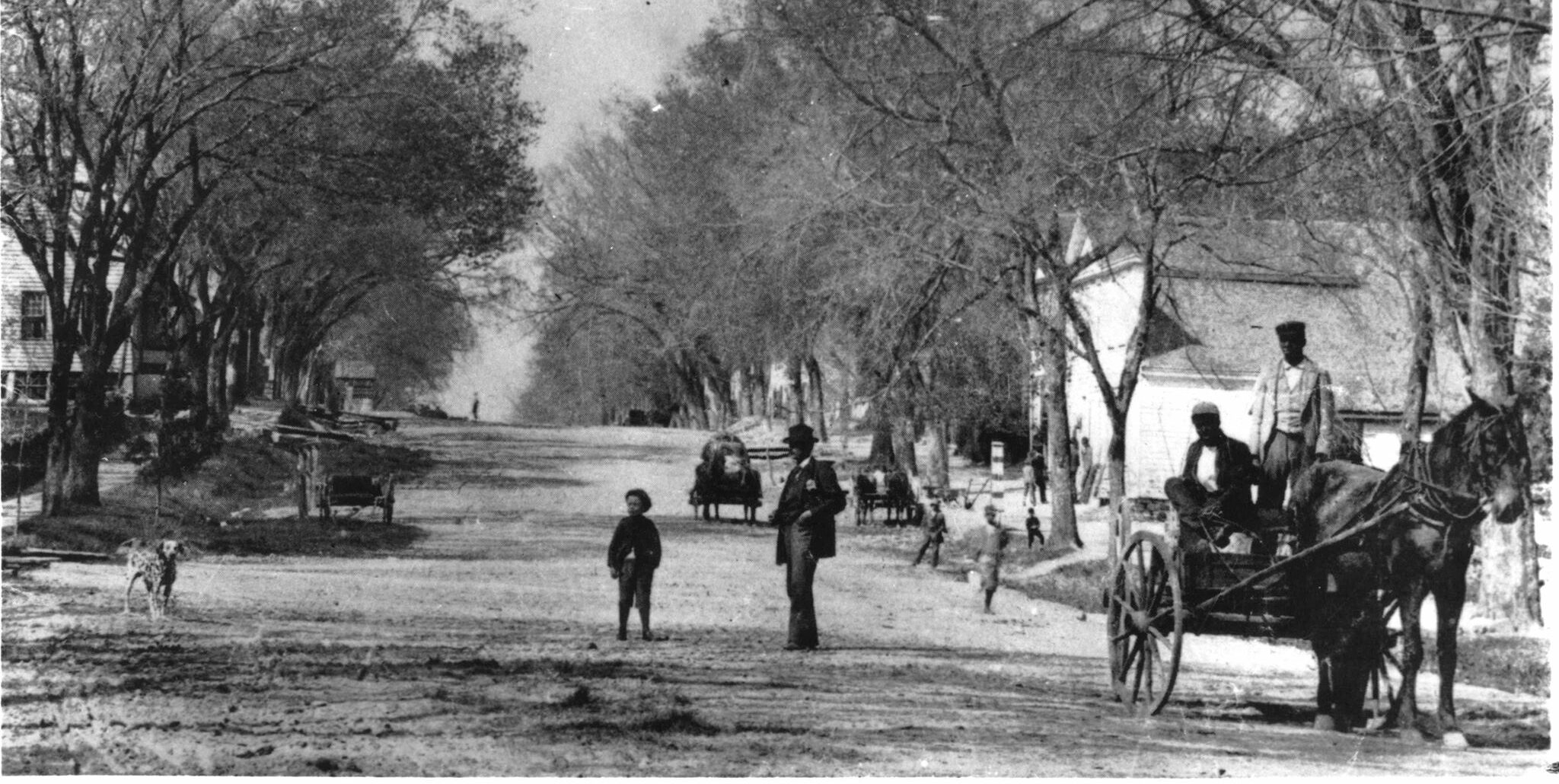411 West
Photograph from Chapelboro.com
If asked to picture 411 West Franklin Street, most Chapel Hill inhabitants would imagine the warm scent of fresh bread and pasta drifting through the air, a cozy spot where broke college students cash in a well-deserved meal during a family visit. Long before it became a staple of West Franklin’s dining scene, this site held far more than recipes and reservations. It stood at the heart of a thriving Black community, was home to cab companies, small businesses, and one of the first local bakeries near campus.
This end of Franklin Street is not as closely remembered by students, but holds a history as rich as any dish served there today. So as you’re welcomed by student staff and vibrant flavors, know that you’re actively taking part in a story that spans generations, communities, and the ever-evolving soul of Chapel Hill.
The “Black Chapel Hill” and Odd Fellows
While East Franklin Street is known for its constant activity, West Franklin offers a different pace. The area includes many locally owned businesses, and several owners live just blocks from their shops. Although it’s been a popular location for restaurants and bars over the years, West Franklin also carries a lesser-known history. A significant African American community lived and worked in this area until the 1940s, and their presence shaped the street in lasting ways
From the Reconstruction era until the mid-1920s, West Franklin was lined with thriving Black businesses, residences, and churches. At 411 W. Franklin, what many now know as the Franklin home to Italian cuisine, existed a building that was used for the “Odd Fellows,” a fraternal organization founded by and for Black American men that provided insurance, welfare, and leadership opportunities to the areas in which they resided. The records on West Franklin before 1940 are sparse – clear evidence of the historical routine which valued only keeping what was deemed “important,” usually disregarding African American history. However, the Black community that existed in places like West Franklin and the Civil Rights protests that occurred there are integral to the history of the street and should not be forgotten.

Photograph from Massengill Post Card Collection at the NC State Archives
See: Bryant, “Occupants and Structures of Franklin Street, Chapel Hill” and Profiles of Chapel Hill Since 1900, “Grand Houses Once Stood on West Franklin Street”
The “Williamsburging” of Franklin Street
Franklin Street and the Chapel Hill community began to see more residents and increased revenue after the Second World War, caused by the influx of veterans who were admitted to UNC on the GI Bill at the conclusion of the conflict. This increase necessitated the construction of new establishments to move towards West Franklin. In these years, many previously Black owned homes and businesses were bought out, and the land itself was razed to make way for new construction. As building picked up on West Franklin in the 1940s, many believed that the classical look of UNC’s campus made the businesses on the street look shabby in comparison. Architects like Archive Davis, who designed the building that now sits on 411 West Franklin, followed the “Williamsburg Plan.” Seeing the success and beauty of Colonial Williamsburg (which opened in 1935), Chapel Hill business owners and developers believed that designing new buildings that were architecturally aligned with the historic charm of UNC’s campus would generate the same sort of success. The establishment was constructed with this in mind – and although the plan did not make it to the other end of Franklin Street, this architectural history is still evident in the 411 structure.

One “Williamsburg” style home that Davis designed (Durham, NC). Photograph from NCModernist
See: Profiles of Chapel Hill Since 1900, “The Williamsburg Plan Transformed Downtown Look” and Little, “The Town and Gown Architecture of Chapel Hill, North Carolina: 1795-1975”
Gas Stations and Cab Companies
The 1920s were prosperous for America, even in the small subdivision of West Franklin Street. In a world becoming more and more dependent on automobiles for travel, there was an increasing need for auto stops – whether it be gas stations, repair shops, or cab companies. East Franklin, nearest to the university, was relatively established by the early 20th century, so it seemed to make the most sense to construct these necessary spaces on the opposite end of the street. The property records on West Franklin are a bit more scarce and hard to follow than on the other end of the street.
In 1947, Thurman Atkins purchased the lot, and the 411 structure was built on it. It is significant to our story that Thurman Atkins was a Black man who grew up in Chapel Hill; by purchasing the lot and erecting his own business on it, he retained a part of the street that belonged to the end once known as the “Black Chapel Hill,” solidifying his name in property records and town memory alike. Atkins also built a structure on the back end of the lot that would serve as housing until at least the ’60s. This building would house both a restaurant and a taxi company until the 1970s. The Hollywood Restaurant operated in the front half, and the taxi company on the other, with the driveway into the cab garage located where 411 West’s sunroom and indoor patio are located today. Although the need for cabs has decreased with the advent of services like Uber, those who have owned and operated the business since recognize the history of the physical structure and what it meant to renovate the space while still maintaining the integrity of the building.


Photographs from Chapel Hill History
See: Profiles of Chapel Hill Since 1900, “Gas Stations Replaced Homes on West Franklin Street,” and OpenOrangeNC, “411 W. Franklin St./The Hollywood Grill/411 West”
The Bread Shop
In a modern college town filled with specialty coffee shops and bakeries, it is hard to imagine a void of these sorts of spaces on Franklin Street – or anywhere! However, up until the mid-1970s, a traditional bread-kneading bakery was hard to come by in Chapel Hill, at least until The Bread Shop. The Bread Shop ran out of the 411 West Franklin space until 1988, providing freshly made bread to Chapel Hill restaurants, residents, and students. Reflecting on the shop, alumni of years past remember walking up from South Campus to get delicious bread for the week, and those from out of town who would proudly buy the bread to freeze when they got home. Regardless of how tasty the baked goods are, business on Franklin Street is notoriously hard to maintain, with over 50% of the business lots on Franklin changing hands between 1984 and 88. In 1988, the Bread Shop moved to a new location just outside of Chapel Hill, where they continued to reside for several years, serving the community and opening the 411 space for a new endeavor.
Photograph from Daily Tar Heel Archives
See: Daily Tar Heel Archives, Bryant, “Occupants and Structures of Franklin Street,” and OpenOrangeNC, “411 W. Franklin St./The Hollywood Grill/411 West”
411 West
Since 1990, the establishment on 411 West Franklin Street has been in use by the classic Italian restaurant 411 West. The Chapel Hill Restaurant Group, founded in part by Mickey Ewell, who worked to bring 411 to life, bought the property from the Bake Shop in 1988. They supported the bakery’s decision to move where business was easier and continue to supply their bread from the establishment for several years. The Restaurant Group’s mission has historically been to bring restaurants to Chapel Hill that fill empty spots in cuisine offerings, which is where the Italian menu bloomed from. 411 has always prided itself on putting fairly priced and fresh food first, quickly becoming a gathering spot for students, faculty, and alumni alike. Students reflect that 411 West is the spot to go when parents come to town, bringing their wallets to have a beautiful and hearty meal. 411’s operators believe that the business district of West Franklin is unique because it is predominantly owned by long-term Chapel Hill residents who want to see their community thrive while also not moving too far from what makes Franklin Street special – namely, the student connection.
Photograph from the Daily Tar Heel Archives
See: Bryant, “Occupants and Structures of Franklin Street”
A meal at 411 West will not only guarantee you a delicious experience, but also supports the students who are employed by the facility, the locally owned business of Chapel Hill, and most importantly, the history that gives it character.

